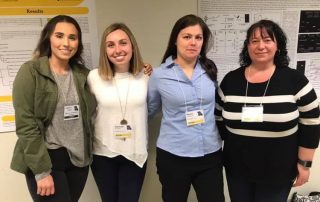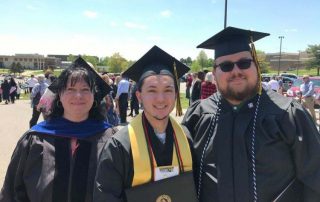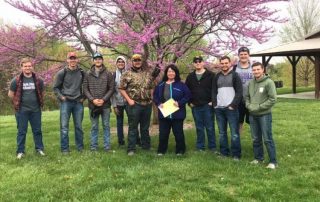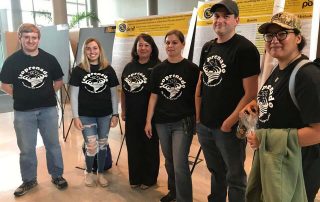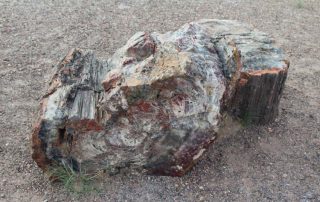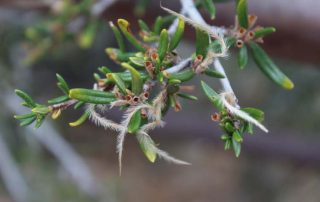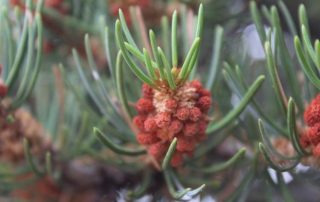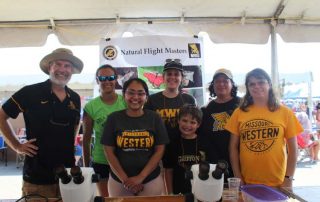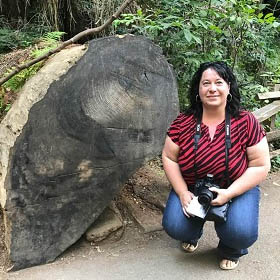
Dr. Csengele Barta, Associate Professor
(816) 271-4334 | cbarta1@missouriwestern.edu
Dr. Csengele Barta has been at MWSU since 2012. Her research interests include the effect of global climate change on photosynthesis and volatile compound synthesis and emission.
To be or not to be from a plant’s perspective: survival in and adaptation to adverse environments. The future of plant conservation.
Collaboration with Dr. Cary Chevalier and Dr. Csengele Barta.
Requirements: Interest in molecular biology, biochemistry, plant biology, or ecology-physiology. Concurrent enrollment or prior completion of at least one of the introductory biology or chemistry core courses is a plus (BIO 105 or BIO 106 or CHE 111).
Chemical warfare in the plant world: allelopathic chemicals as high efficiency tools in the arsenal of invasive plants in competing for resources with native species
Invasive plant species are a threat to biodiversity and a relevant concern for species conservation and restoration. Leachates from decomposing leaves of Amur honeysuckle (Lonicera maackii), a highly invasive shrub rapidly conquering regions of the Midwestern US have been documented to have devastating effects on native species diversity, via their negative allelopathic effect on native seed germination and seedling growth.
Within the frame of this project we will identify and characterize the honeysuckle metabolites responsible for the inhibitory effect, will characterize their biosynthetic pathway(s) and the seasonal or environment-driven regulation of their synthesis. In addition, we will also identify the action mechanism of honeysuckle leachate-induced allelopathic inhibition. A better understanding of the inhibition mechanism by allelopathic chemicals is expected to contribute to developing effective invasive species management approaches in the future.
Paying “the right price” for stress protection in a “volatile” future: plants’ costs and benefits of emitting isoprene in a warming climate
Within this project we will focus on mechanisms regulating the seasonal and climate-controlled isoprene biosynthesis in oaks (Quercus spp.), particularly abundant in Missouri. We will investigate the key regulatory steps of isoprene biosynthesis and emission in oaks under physiological and changing environmental conditions. In addition, we will also address the molecular and eco-physiological consequences of changing climate-induced alterations in isoprene synthesis and emission and assess the relationship between the metabolic costs of isoprene synthesis and the molecular/physiological/plant fitness benefits provided.
The molecular basis of diversity in the isoprene synthesis and emission capacity of Missouri oaks.
Isoprene emission inventory data indicate that the capacity to emit isoprene is present in species of many families of plants, but is rarely widespread across all species of the same family. This research project will focus on investigating the molecular basis at the diversity of volatile emission capacities in members of the oak family, and the evolution of the isoprene emission capacity in emitter North American oaks.
Requirements: Interest in molecular biology, biochemistry, plant biology, or ecology-physiology. Concurrent enrollment or prior completion of at least one of the introductory biology or chemistry core courses is a plus (BIO 105 or BIO 106 or CHE 111).

About Dr. Csengele Barta
Ph.D. Plant Physiology, University of Szeged
M.S., Plant Physiology, Hungarian Academy of Sciences
B.S., Biology, B.S., Chemistry, B.S., Biology/Chemistry Education, Babes Bolyai University
Contact Dr. Barta
Agenstein 237B
4525 Downs Drive
Saint Joseph, MO 64507
USA

